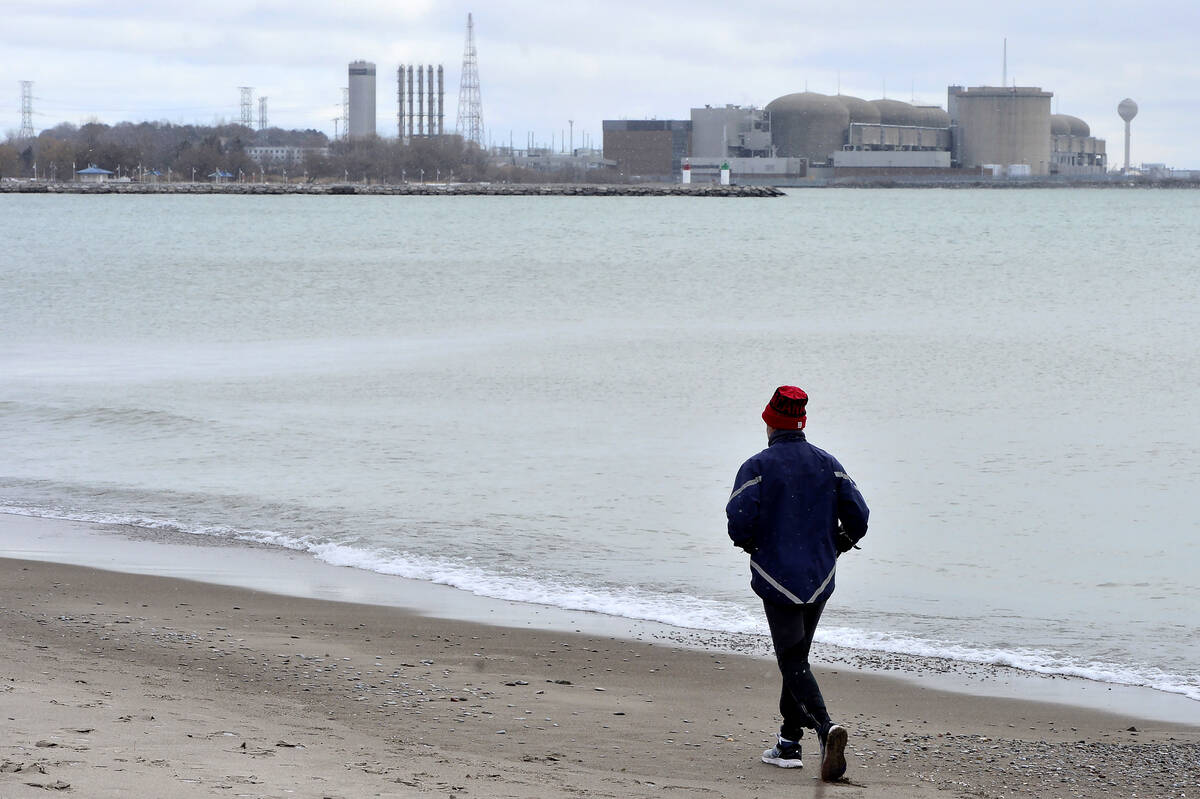JONAH GOLDBERG: To fight climate change seriously, nuclear power must be on the table

World leaders are heading to Glasgow to come up with yet another plan to tackle climate change. President Joe Biden had hoped to have a stack of climate-related legislative accomplishments to brag about. But they’re being held up and threatened in the fight over the price tag of the Build Back Better bill.
The stakes, we’re constantly told, couldn’t be higher. If Democratic Sen. Joe Manchin and the Republicans succeed in stripping just the proposed Clean Energy Performance Program alone, it will “destroy the world,” according to Gizmodo. Biden doesn’t go that far. But recently, at a CNN town hall, he repeated his oft-cited claim that climate change poses an “existential threat to humanity.”
Such rhetoric isn’t merely wrong — humanity can survive climate change — it’s also counterproductive. The fight against climate change will be long and messy, and implying otherwise will make it longer and messier. For 30 years, activists and politicians have said before these periodic climate confabs that this is our “last chance” to act or to save the planet.
Normally, if you miss your last chance to do something — catch a flight, see a movie, etc. — you stop trying. If you think climate change should be the moral equivalent of war, then you should manage expectations like a wartime leader does. You don’t say, “We’ll lose the war if we lose this one battle” — unless it’s true.
You also don’t refuse to use your most effective weapons, at least not in a fight for the survival of humanity, without a good reason. And in this case, the best weapon in our arsenal is nuclear power. As former NASA climatologist James Hansen and his colleagues have argued, there’s “no credible path to climate stabilization that does not include a substantial role for nuclear power.”
But to quote Greta Thunberg, the Joan of Arc of climate activism, the arguments against nuclear power boil down to it being “extremely dangerous, expensive” and “time-consuming.”
Let’s start with dangerous. For reasons of human psychology, deep-seated fear of nuclear power is socially acceptable among those who claim to “follow the science.” But just as the COVID-19 vaccines have saved the lives of hundreds of thousands of people, a few people — literally a few — have had bad reactions to the vaccine that may have contributed to their deaths. Whatever that number is — three? four? — that’s more Americans than have died from nuclear power.
The Three Mile Island nuclear accident, the worst in American history, caused no deaths or detectable incidents of cancer. The 2011 earthquake and tsunami that destroyed the Fukushima nuclear power plant was very deadly, killing up to 18,000 people. But the number of radiation-related deaths or illnesses connected to the power plant meltdown have been in the low double digits. The first confirmed radiation-related death occurred in 2018.
The United Nations reports that so far, the “most important health effect” hasn’t been a spike in cancer but the damage to “mental and social well-being” caused by the earthquake and tsunami.
Indeed, if you include all factors, including industrial accidents, air pollution, etc., nuclear power is arguably the world’s safest form of energy production.
Then there’s the cost. It’s true: Building nuclear plants, whether with existing or new technology, is expensive. But once nuclear plants are built, the energy they produce is cheap. That’s why Germany, which has been mothballing its nuclear plants in a largely failed decade-long experiment, has the most expensive electricity rates in the world. And Germany’s carbon emissions are 10 times greater than those of France, which gets 70 percent of its electricity from nuclear power. Wherever nuclear plants have been closed, writes Ted Nordhaus, founder of the Breakthrough Institute, “clean electricity has been replaced with dirty power.”
There’s also something weird about politicians who scoff at cost concerns to fight climate change (on their terms) and then raise the cost of building nuclear plants as prohibitive, when they can provide carbon-free electricity on a massive and reliable scale.
Indeed, one reason it takes so long for nuclear plants to get built is that many of these politicians stand in the way of getting them built, by pandering to NIMBYism and supporting red tape. They’re all in for “decarbonizing” transportation while opposing technology that will keep electricity affordable.
None of this is to say that nuclear power alone is a silver bullet, nor is it to deny that the question of how to deal with nuclear waste isn’t a thorny one (especially after President Barack Obama rejected science in favor of politics to shut down the perfectly safe Yucca Mountain waste repository). Some old plants do need to be shut down, but they should be replaced with new, safer and less expensive ones.
But if Biden is serious about fighting climate change — and wants to show it — he should take nuclear power seriously.
Jonah Goldberg is editor-in-chief of The Dispatch and the host of The Remnant podcast. His Twitter handle is @JonahDispatch.